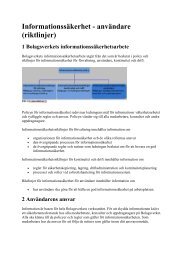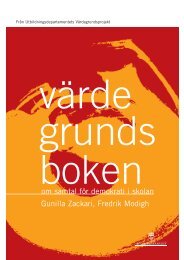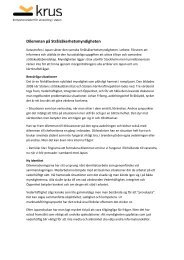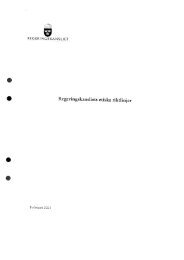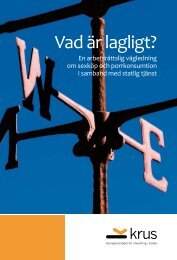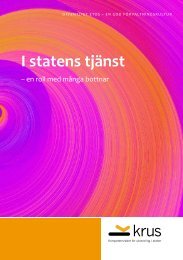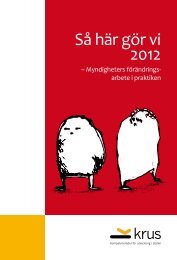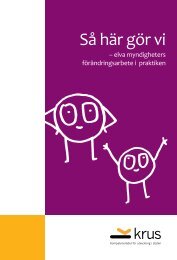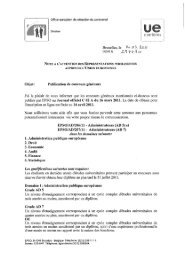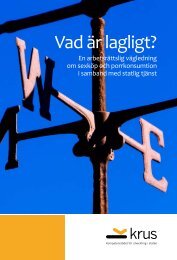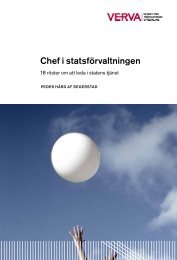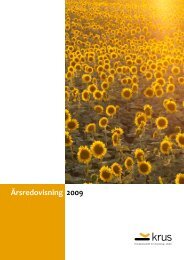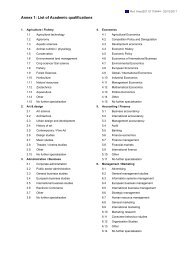Dialogkompetens i skolans vardag - Publikationer - LTU - Luleå ...
Dialogkompetens i skolans vardag - Publikationer - LTU - Luleå ...
Dialogkompetens i skolans vardag - Publikationer - LTU - Luleå ...
You also want an ePaper? Increase the reach of your titles
YUMPU automatically turns print PDFs into web optimized ePapers that Google loves.
- How do pupils describe their choice of the best listening environment in<br />
school (Study I)?<br />
- How can tools used in action research promote learning in relation to Vygotsky’s<br />
concept of the zone of proximal development (Study II)?<br />
- What kind of communication develops via the Internet when an improvement<br />
group exchanges experiences in writing concerning classroom-based attempts<br />
at change (Study III)?<br />
The concept of dialogue is central in this thesis, which is based on two contexts.<br />
One of these deals with the teacher as an actor in school improvement dialogues,<br />
the other with hard-of-hearing pupils as actors in classroom dialogues. I have<br />
drawn on sociocultural theories in order to understand what a dialogical attitude to<br />
learning might imply. In the thesis, the concept of dialogue is used in Bakhtin’s<br />
(1981) widened sense, that is, talk or text aiming at all individuals’ voices being<br />
heard. Voices in the dialogue give rise to a large number of reactions, in which<br />
relations, frictions and differences are seen as necessary ingredients. Letting pupils’<br />
voices be heard is part of the basic values of schools, where the asymmetric<br />
relationship of teachers and pupils must not become an obstacle to democratic<br />
working methods. Inviting pupils to take part in dialogues in order to develop<br />
their dialogical competence is to prepare them for active citizenship.<br />
Learning dialogues in the zone of proximal development (Vygotsky, 2001) require<br />
incorporated scaffolding and a shared responsibility for knowledge development.<br />
When scaffolding (Wood, Bruner & Ross, 1976) is practised in the zone<br />
of proximal development, there is a need for peers (or colleagues) who can be<br />
critical friends (Handal, 1999).<br />
The pupils’ learning environments<br />
A regional school is run by a municipality, but offers pupils from other municipalities<br />
to participate in classes for hard-of-hearing pupils. Otherwise the same<br />
assignments and control documents apply as for other Swedish compulsory nineyear<br />
schools (Roos & Fischbein, 2006). Most parents have chosen classes for<br />
hard-of-hearings because the children need access to audio technical equipment,<br />
acoustically sanitized premises, small classes and sign language as their second<br />
language (Wennergren, 2006). The most common arrangement is for the pupils to<br />
have sign language teaching a couple of times per week. Pupils who have a command<br />
of both languages have the advantage of not having to choose but can take<br />
92



